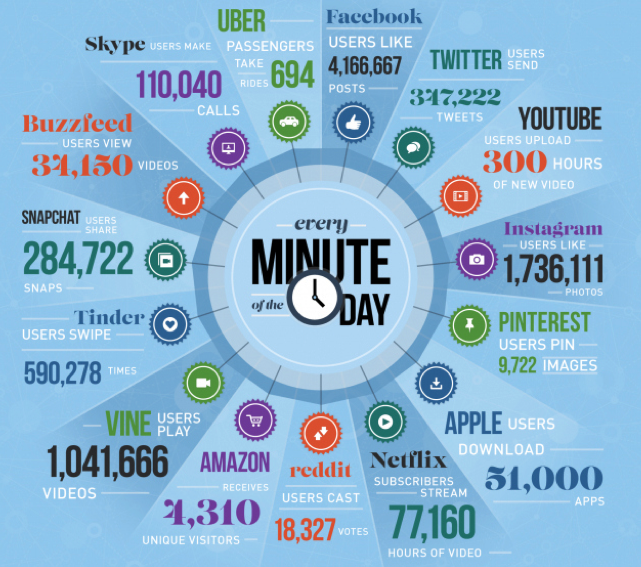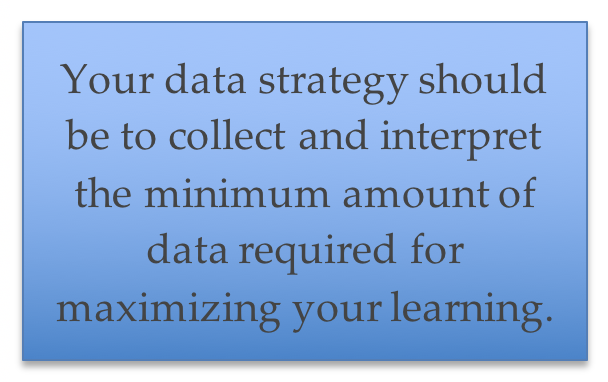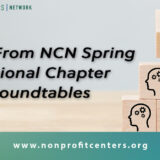Avoiding the TBU trap: Creating and Implementing A Useable Data Strategy
We are excited that today’s blog author will be featured as one of 8 presentations at this year’s Sharing Innovation 2018. Like what you read? Register today at www.nonprofitcenters.org/sharing
Data and Information
Data is everywhere. We generate and consume it throughout our day, whether at work, at play, or at home. On the ground and in the cloud – smart devices track our every step (literally), while algorithms convert traces of our decisions, actions and moods into predictors of future behavior.
 So too in our centres, data is everywhere. Wherever we fall on the spectrum from co-location to collaboration, we interact with our constituents in a wide variety of ways – they are tenants who sign leases and pay rent, collaborators who contribute to shared missions, members who draw on our support. Each of these activities generates bits of information, and we could – at least hypothetically – track all of them into some giant whole.
So too in our centres, data is everywhere. Wherever we fall on the spectrum from co-location to collaboration, we interact with our constituents in a wide variety of ways – they are tenants who sign leases and pay rent, collaborators who contribute to shared missions, members who draw on our support. Each of these activities generates bits of information, and we could – at least hypothetically – track all of them into some giant whole.
But we quickly realize that information is not by itself particularly helpful. Mere numbers strung might create a moment’s curiosity – but then what? For example, you’ve likely seen the graphics depicting the mega-activity of the modern Internet: so-and-so many millions of videos viewed every second, such-and-such many billions of “likes” clicked on social media: tweets and swipes and comments, oh my! We have no reason to doubt the truth of this data – but what can we do with it? Information is not yet knowledge. In his book “Data Driven Nonprofits,” Steve MacLaughlin coined the phrase “TBU: True But Useless.” In order not to waste resource collecting TBU data, we have to adopt the usability mindset from the outset.
Devising a Data Strategy
Without taking the time to develop an intentional data strategy, you find yourself at the mercy of information overload, or, at the other end of the spectrum, willful ignorance. Your efforts to determine what kind of information you should gather and how will pay off significant practical dividends. And, adapting the usability mindset, the question “What kinds of data should we gather?” becomes a set of questions about “What kinds of data can be used, specifically? How will we use it, specifically? And who will use it (specifically)?”
Working backwards in this way will allow you to collect just the minimum amount of information required for maximizing your learning and strategic purposes.
Implementing your Data Strategy
Once you have a clear understanding of your informational requirements, you can begin to select and implement the combination of software platforms, evaluation plans, and data use policies that will allow you to create meaning out of your data.
There are numerous free, open-source, community-supported platforms designed to help you collect data that is relevant to you. We often recommend a combination of CiviCRM and ABCD to clients to gather and organize the information that they need. These software packages can integrate with your website and other public sources of data to combine the information you gather onsite with other relevant data to allow you for a rich, deeply interpretable data set.
Join us in Denver on for Sharing Innovation 2018 where we’ll talk more in depth and share some case studies of Data Strategy successes and failures.








One comment
Jean Simoens
November 16, 2018 at 4:36 pm
This is interesting, I’ve never thought of data as something we should have a strategy around… and something where less is more.